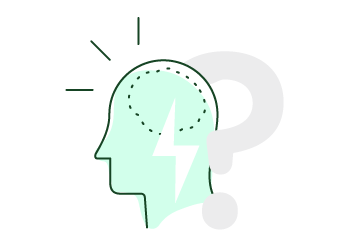Personal Productivity
How To Be Productive When Bored
AUTHOR: Francisco Sáez“You have to allow a certain amount of time in which you are doing nothing in order to have things occur to you, to let your mind think.” ~ Mortimer Adler

Basically, you’ll hear or read two kinds of comments about boredom and productivity. The most common is that “boredom is a productivity killer.” Other, the less common, opposite and somewhat counter-intuitive, is that “boredom improves your productivity.”
Both statements can be true. To take advantage of your boredom, you must understand why you get bored, when it benefits you and when it doesn’t.
Boredom can improve your productivity
Boredom is something we try to avoid at all costs. That’s why so many people try to be busy all the time, both at work and in their personal life. They don’t want to experience that feeling at all.
If this happens to you, let me tell you that the need to feel always busy, far from helping you, usually has negative effects on your productivity (and probably on other aspects of your life outside the scope of the subject of this blog).
When you’re looking to get busy, sometimes what you do is to fill your time with distractions and unimportant activities that make you feel you’re always in action. “Congratulations, you’re not bored anymore.”
The problem of doing things all the time is that you don’t stop to analyze the most efficient way of doing them or even the real need of doing them. You just do, and don’t think. And that, in terms of productivity, is as inefficient as thinking and not doing. Besides getting things done, you must set goals and priorities, define strategies, plan… There must be a balance between your doer and your thinker sides.
Instead of doing the first thing that comes to your mind so you don’t get bored, relax a bit and enjoy the benefits of boredom. How can boredom be good for you?
- When you are bored, your mind relaxes and you’re more inclined to ponder and meditate 1, and that is essential for all aspects of your life. They say that a brain on autopilot takes you to where you really want to go. So do not worry, think, reflect and enjoy that time.
- When you are bored, your mind starts to wander and invent things. You think about things you could do. Some are crap, some are funny, and some may even be interesting. You think of ideas to carry out new things and ideas to improve things already existing. It triggers your creativity 1.
- When you are bored, both your brain and your willpower rest and recover, which is essential to later undertake other tasks that require some effort, as I explain in this article: The number one habit you need: Self-discipline.
Boredom can kill your productivity
In a study about gifted students who gradually were losing interest in their classes, it was revealed that boredom and disengagement are closely related to our degree of control and choice over what we do, and with the challenge that what we have to do means to us. This study also showed that learning is the best antidote to boredom.
Moreover, employee boredom is one of the lesser known causes of low productivity at work. Another recent study noted that 71% of American workers are not engaged in their jobs and that even excellent professionals can disengage when they get bored.
Normally, boredom is simply a problem of motivation. It’s not that you have nothing to do, but there is nothing that motivates you enough to do it. According to this study, the reasons an employee is gradually discouraged and stops being productive are very similar to those of students who drop out:
- Lack of control over what they are doing.
- Lack of recognition by others
- Doing things that do not pose any special challenge.
- The feeling of not doing something that is important enough.
Boredom leads to stress and low self-esteem, affecting the morale, creativity and productivity of the employee. As learned from these studies, to avoid lack of motivation due to boredom you must create a work environment that nurtures the factors that push us from inside: Autonomy, mastery and purpose.
Conclusion
I never get bored. Or I may not feel bored when I’m supposed to be. I understand that I can not always be doing stuff and my head needs a break from time to time. I know it’s a way to zoom out and find balance in my thinking, so I accept it willingly.
I have a thousand hobbies and, moreover, doing don’t always mean executing tasks. Relaxing, listening to music, reading something I feel like, cycling with my bike or taking a walk to think about something; all these actions can be, as we have seen, stimulating and productive ways of boredom.
And you, what do you do when you get bored?
1 Notes:
- You’re bored, but your brain is tuned in, The New York Times
- When is boredom a good thing?, Psychology Today
- Being bored at work can make us more creative, Science Daily





No comments